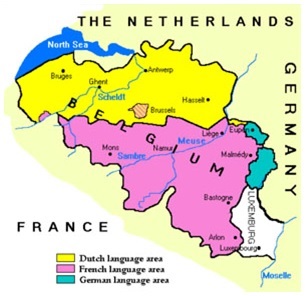Also in the news...
France: providing services and travelling for business
Guidance for UK businesses on rules for selling services to France.
Living in the USA
Information about moving to, living or retiring in the USA – including visas, working, healthcare and driving.
Trade with Liechtenstein
How you import from and export to Liechtenstein
UK trade with the United States: Impact of tariffs on imports and exports of goods
A closer look at the goods the UK trades with the United States in the context of trade tariffs.
Simplified rates for bringing personal goods into the UK
Find out about the simplified rates of customs and excise duty used when you declare your personal goods online.
Language variants – why your translation should be localised
When requesting a translation, knowing what languages you want to translate into is sometimes straightforward, e.g. for a marketing campaign in Italy, you'll choose Italian and for a technical manual that will be used in Russia, you'll choose Russian.
However, what happens when the country of your target audience speak and write in more than one language? Or a language is spoken and written in multiple countries and there are different variants of the language? This post will explain the importance of language localisation – adapting your content to a country or region where the vocabulary and grammar used can be considerably different. It should also help you to identify which language variant your document needs to be translated into.
Chinese
At Surrey Translation Bureau, we get many requests for Chinese translations but what does it mean when you request a translation into Chinese?
There are two main variants of written Chinese,Simplified Chinese and Traditional Chinese.Simplified Chinese is used by most individuals from mainland China and Singapore; its spoken form is Mandarin. According to a linguistic study, approximately 95% of the Chinese population use Simplified Chinese (Potowski, 2010).
The second major written variant is Traditional Chinese. This is used by people living in Taiwan, Hong Kong and Macau. The spoken version of Traditional Chinese is Cantonese.
Selecting which form of written Chinese is most appropriate for your translation therefore depends on which part of China you are aiming to connect with. We are always happy to advise you if you are unsure.
French
A country's history often means that a language is not confined to its physical boundaries. For example, French is the official language of France which has a population of approximately 66 million, but it is also an official language in 29 other countries, from Cameroon to Luxembourg.
In Belgium, French is one of the official languages alongside Dutch (whose variant in Belgium is called Flemish) and German.
We have translators who translate standard French and those specialised in Belgian French translation, which has some differences from standard French. French is predominantly spoken in the southern Walloon region of Belgium as well as in the capital, Brussels, whose two official languages are French and Flemish. Other varieties of French include Québécois (Canadian) French and Swiss French.

Language regions in Belgium
Flemish and Dutch
Flemish is spoken in Belgium, mainly in the Flanders region in the north of the country.Dutch on the other hand, is spoken in the Netherlands. Although there are similarities between Flemish and Dutch, there are many differences in the vocabulary. Therefore, it is important to ensure that you choose the correct language for translations reaching clients in Belgium or the Netherlands.
German
All Germans write using a standardised form of German,Hochdeutsch.Austrian German and particularly Swiss German deviate fromHochdeutschboth in terms of grammar and vocabulary. Whilst standard written German is comprehensible to Swiss and Austrian German speakers,it is often necessary to localise the linguistic content (choosing different words, spellings and grammar) to make sure it is appropriate for the target market.
Spanish and Portuguese
Spanish is spoken not only in Spain but across much of South America. There are various grammatical and terminological differences between Latin American Spanish and Castilian Spanish (spoken in mainland Spain). For this reason, to effectively communicate with your target market, it's essential to use the language form that is standard to them. If you use words or grammatical structures that are unfamiliar or unrecognisable to existing or potential clients, your translations are unlikely to generate effective business results.
Likewise, Portuguese is spoken in Portugal as well as Brazil among other countries. So when ordering a translation ensure your translation service provider is informed where your translations will be used so that they can translate the document appropriately.
When we localise your translation we also take many other factors into account, such as cultural sensitivities, date and address forms and even country specific statistics (if required). This ensures that your translation makes the right impression and does not alienate your target market.
UK and US English
English might not immediately spring to mind when contemplating its variants, but English also varies from country to country. If you are targeting the US market, it is important that your content is adapted using US spellings. This is a service Surrey Translation Bureau offers.
In order to conduct business effectively, it is important to address individuals appropriately. Doing business with people from different countries and cultures can hugely grow your business and profit. However, you should make an informed decision about the language variant you choose, with the help of your translation service provider (hopefully us!). This will ensure your translation demonstrates to potential clients how important they are to you.
If you have any queries regarding language variants or if you would like advice on what language variant to opt for email us on hello@surreytranslation.co.uk or call us on 01252 733 999 to discuss your translation project requirements.

